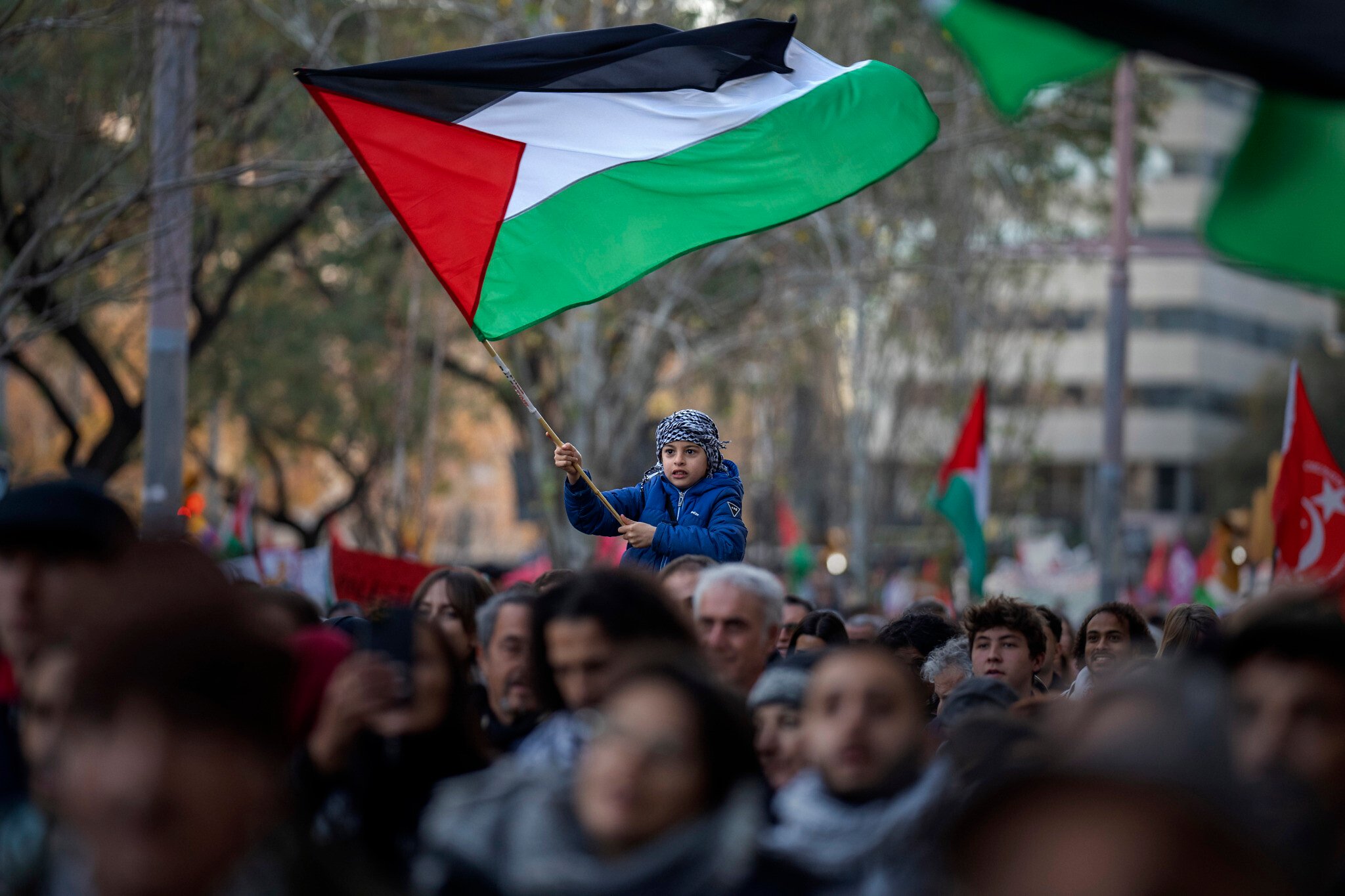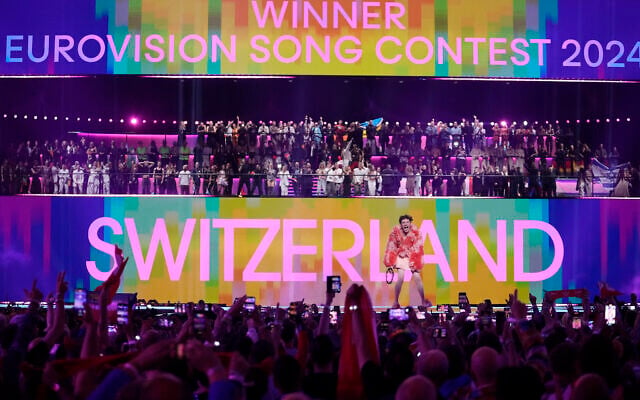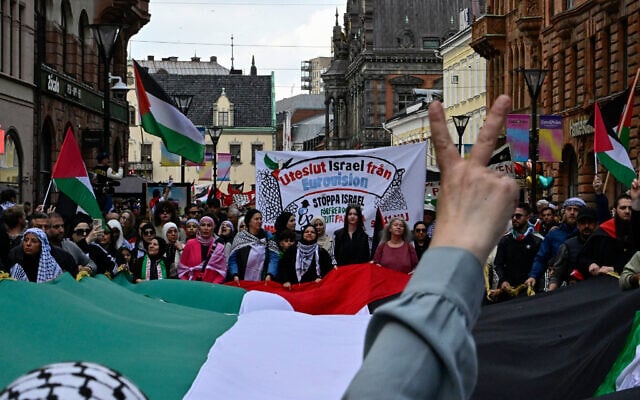



The European Broadcasting Authority changed its policy this week to allow all “legally permitted” flags to be flown in the audience at this year’s Eurovision Song Contest, opening the door for spectators to display the Palestinian flag after it was previously banned from the event.
The revised rules specify that fans can bring and display any flag that does not fit one of the following descriptions, according to a document obtained by the Danish national broadcaster: Flags with racist and/or discriminatory content, including symbols that incite hatred or violence; flags that may be considered offensive or defamatory; and flags with symbols of banned terrorist organizations.
As such, fans will now be allowed to fly the Palestinian flag or any other banner that fits within the revised rules.
However, the new rules also include stricter statutes for what artists and participants can display on stage, which will now be limited solely to the national flag of whoever is on stage at the time.
This new rule prohibits artists from displaying all Pride flags, the Palestinian flag or any other flag not belonging to their country of origin.
According to multiple reports, the new rules also come with updated consequences for violators, which include confiscation of banned items and removal from the crowd.

The Swiss city of Basel will host this year’s contest — one of the world’s biggest live television events, which involves countries from across Europe to Australia — at the St. Jakobshalle indoor arena, with the semi-finals on May 13 and 15, and the final on May 17.
Representing Israel will be Yuval Raphael, who survived Hamas’s massacre of the Nova music festival on October 7, 2023. She will perform a song titled “New Day Will Rise.”
Israel has won the contest four times, most recently in Lisbon in 2018.

Israel’s participation in the event has long been the subject of controversy, but since the war in Gaza broke out following Hamas’s attack, which killed 1,200 and resulted in the kidnapping of 251 hostages to Gaza, many have called for the country to be removed from the event.
Over 51,000 Palestinians have been killed in Israel’s counter-offensive, according to Gaza’s Hamas-run health ministry, whose unverified figures do not differentiate between civilians and combatants.

Thousands protested at last year’s contest in the Swedish city of Malmo over Israel’s participation, and this year, the Spanish public broadcaster RTVE sent a letter to the director general of the European Broadcasting Union, calling for an open discussion on Israel’s participation.
The EBU rejected the call, saying that while they hold an “appreciation [that] there are concerns and deeply held views around the current conflict in the Middle East,” all EBU members are eligible to compete in Eurovision.
The statement did not name Israel, but the country’s Kan public broadcaster is a member of the EBU.
Spain has been one of the more vocal European countries criticizing Israel over the Gaza war and formally recognized a Palestinian state last year, in a move Israel says is a reward for terrorism.
